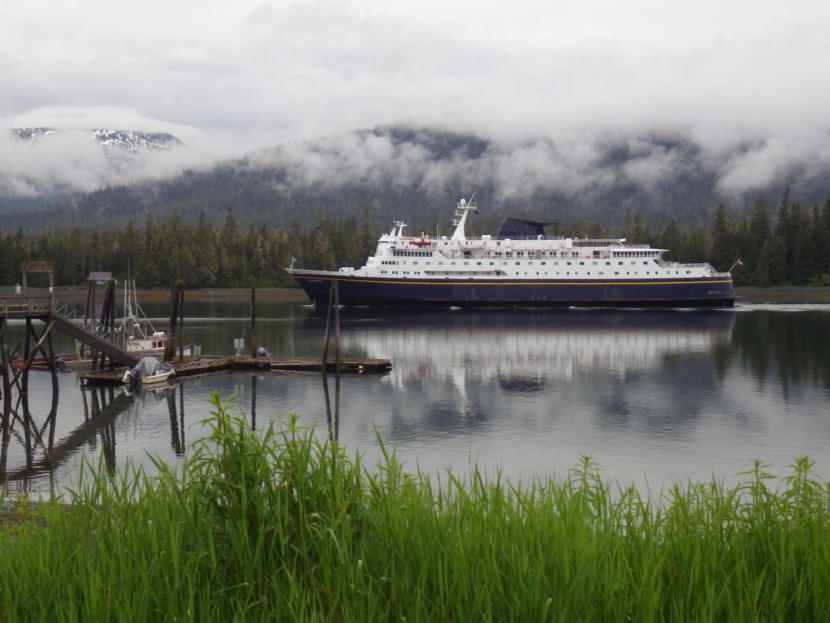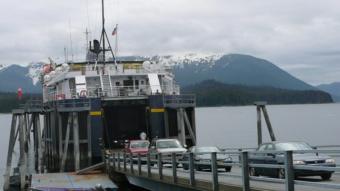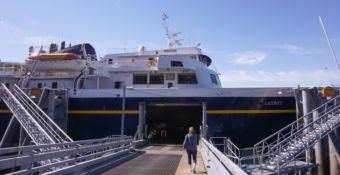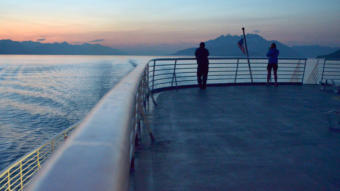
Gov. Mike Dunleavy proposes about $51 million to run state ferries. It’s actually slightly more than he initially proposed last year. But it’s much less than historically appropriated to the fleet.
Lawmakers weren’t comfortable with Dunleavy’s budget last year. They added in about 25% more to their budget to reduce service gaps. But the governor erased most of the extra funds with a stroke of his veto pen.
Now, he’s proposing to run the ferries with $2.4 million less than he ultimately signed off on last year. He told reporters that he’s looking for guidance from a task force he appointed that spent most of the year studying the Marine Highway and delivered its final report this fall.
“We really believe that there needs to be a discussion with the (Alaska) Marine Highway Reshaping Committee,” the governor told reporters last Friday, “which I hope also takes place and we’ll be talking to legislature about that, because that committee worked on looking at ways to again, make the ferry system sustainable for coastal Alaska.”
Kodiak Republican Rep. Louise Stutes sat on the nine-member work group.
“He’s had that report since October, and to my knowledge, there’s been no outreach to that reshaping group,” she said. “And there was no suggestions whatsoever in that report that that budget should be cut.”
She’s a staunch defender of public investment on the Alaska Marine Highway and critical of the governor.
“He says he’s listening to Alaska as well, he apparently didn’t hear the outcry of people in support of the marine highway system,” she added.
Funding for the Marine Highway will likely be contentious in Juneau this year.
Railbelt interests have long criticized the expense of running the fleet, while coastal residents argue it’s critical infrastructure for communities with little or no road access.
Ketchikan independent Rep. Dan Ortiz co-chaired the House Finance Committee for the past two years. He says long service gaps are already a problem at current levels. And he calls the governor’s ferry budget “disappointing.”
“It was an indication to me that the marine highway continues not to be a priority for this particular governor,” Ortiz said, “even though it’s certainly an integral part of our transportation system infrastructure for all coastal Alaskans.”
This year the Department of Transportation reported a steep drop in fare revenue as fewer people traveled during the COVID-19 pandemic. DOT has been scheduling one mainliner at a time, leaving little-to-no slack in the system if a ship breaks down. That’s led to months-long service gaps — planned and unplanned — as the fleet struggles to keep communities connected.



